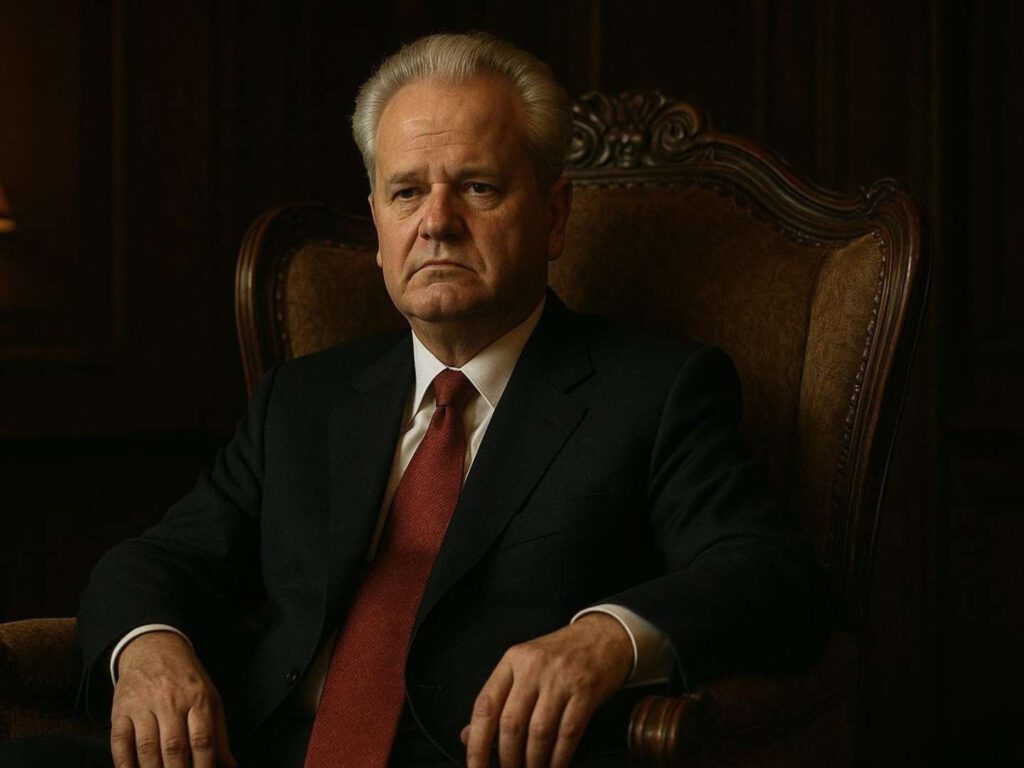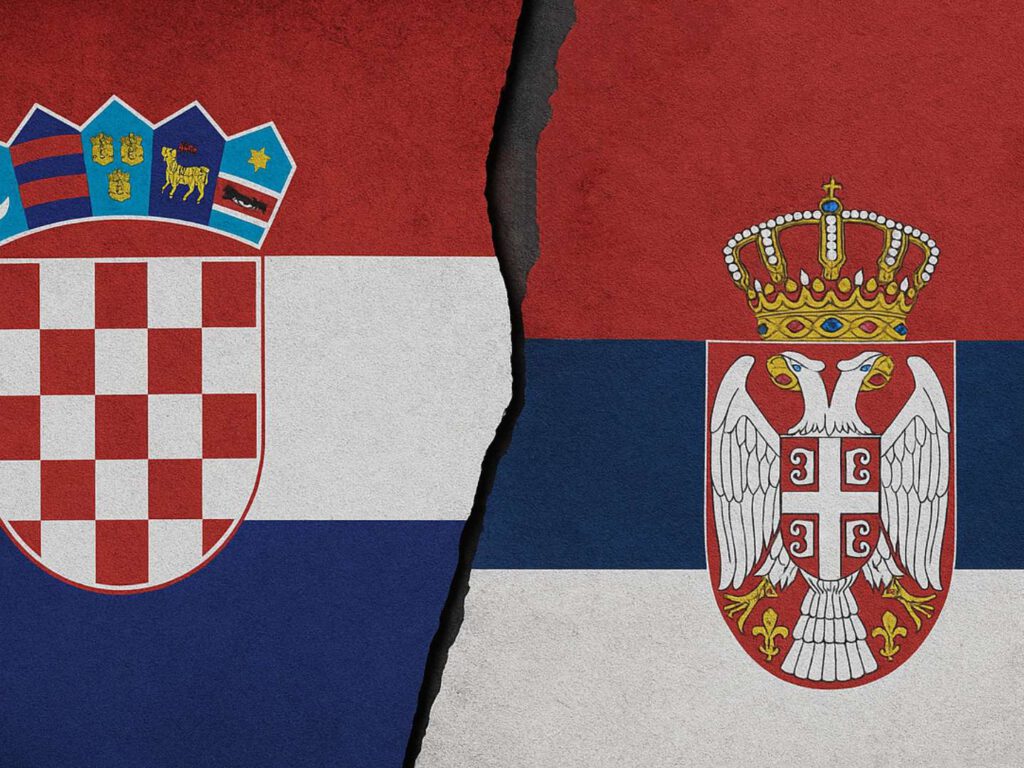The Elections in Georgia Seen Through the Eyes of the Observers
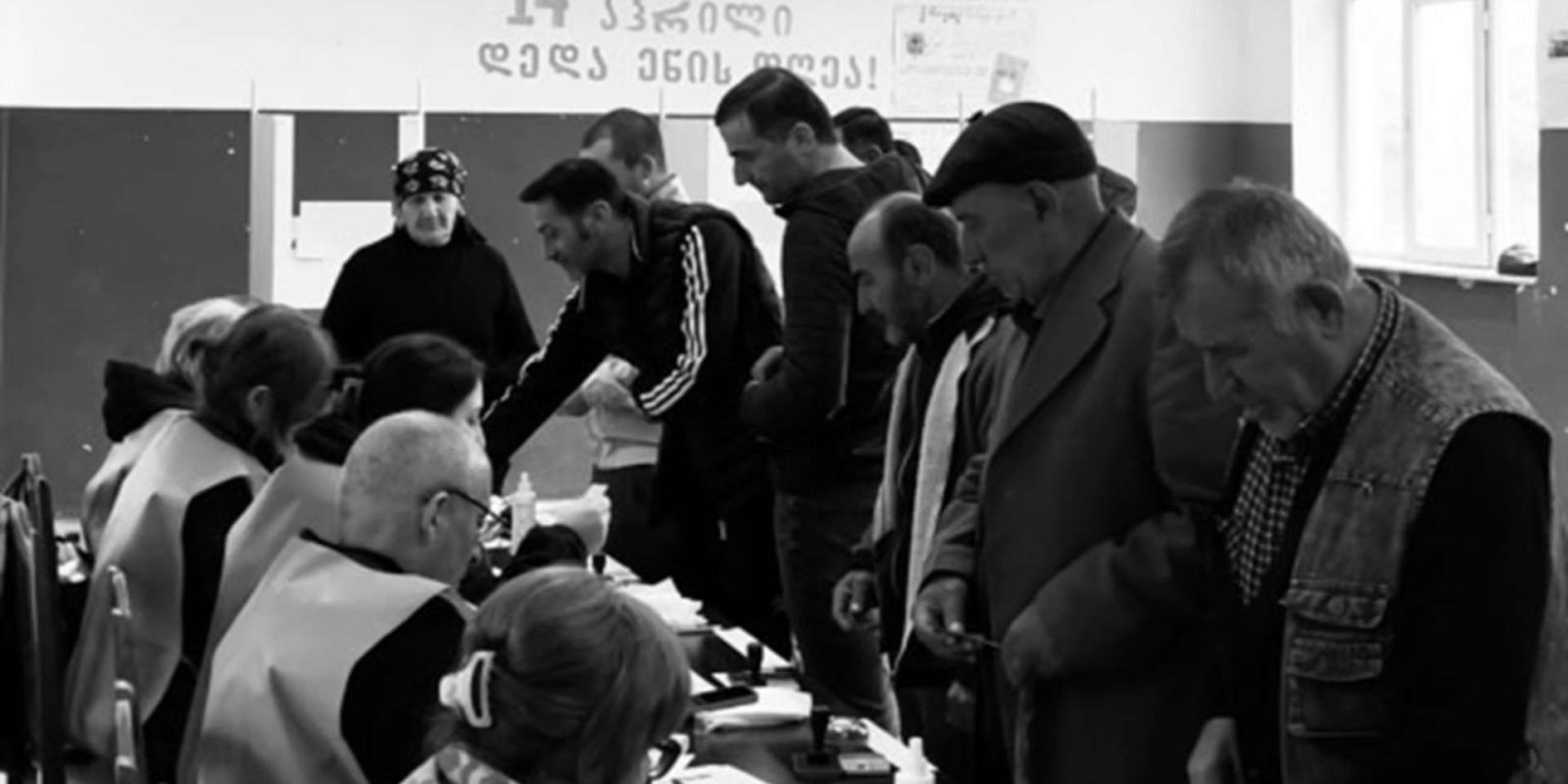
While the debates go on regarding the fairness of the parliamentary elections among Georgian politicians, the members of CSOs, NGOs, law organizations and opposition parties have united to expose the irregularities that were taking place in the elections. The role of international and local volunteer observers in these elections was indispensable.
Georgia’s recent parliamentary elections, held on October 26th, have drawn considerable international attention. Some foreign governments, like the Hungarian, Turkish, Iranian, and even Venezuelan, favouring the ruling Georgian Dream party, congratulated them on a „well-deserved victory.“ Even Russian propagandist Margarita Simonian posted on Telegram: “Georgians won. Good job!”
Meanwhile, at a press conference on the day after the elections, international observers expressed significant concerns, reporting numerous legal violations across various constituencies, and found that although voter participation was strong in Georgia’s 2024 elections, there were concerns about fairness. The election campaign was highly polarized, with reports of media bias, and voter intimidation, which they insist must be investigated.
Local monitoring groups and individual observers also alleged widespread electoral fraud, claiming irregularities were evident throughout the process. “With over 99,97 % of precincts counted, official results published by the Central Election Commission show the ruling Georgian Dream party winning parliamentary elections with 53,92 % of the vote, while the combined share of four opposition coalitions that passed the election threshold totals 37,78 %.”
The election results shocked opposition supporters, who had expected a decline in support for the ruling Georgian Dream (GD) party due to its anti-democratic and anti-Western stance. GD’s campaign, however, centered on fear tactics, warning of a potential “war” from the “Global War Party,” while using promises of “peace” and stoking social tensions.
With electronic polling in 90 % of precincts, technology handled most of the voting, while traditional paper ballots were used in a few areas.
According to the International Society for Fair Elections and Democracy (ISFED), voter manipulation and data misuse were widespread: reports of unlawful collection and processing of voter personal data, including the alleged confiscation of ID cards, aimed at pressuring voters. This was part of a broader scheme of voter bribery and manipulation, with limited action from investigative bodies.
- Changes to Electoral Legislation: Legislative changes weakened the independence of the Central Election Commission, reducing the quorum needed for decision-making and altering the allocation of functions among precinct election commissions, affecting election fairness – most of the observers were from GD party, or GD biased NGO, or CESCO (the Central Election Commission), which is largely seen as a GD’s subordinate organization.
- Russian Interference: Russian information operations against democratic processes were intensified before the election, influencing the political environment. Regardless, Kremlin’s spokesman Dmitry Peskov said: „We strongly reject these accusations. There was no intervention. These accusations are completely unsubstantiated.“
- Challenges for Overseas Voters: Issues enabling Georgian voters abroad to participate in the election persisted, directly affecting the voting process on election day. The existing election precincts in particular countries were short for the number of voters. People waited in hour-long queues across various cities in the USA and Europe.
Witnessing Fraud on the Ground
The body responsible for organizing, administering, and overseeing elections and referendums in Georgia is the Central Election Commission (CESCO), which in essence had to ensure that the processes are transparent, lawful, and democratic. The representatives of this organization were eligible to „take care“ of the other observers. The CESCO is widely perceived as being influenced by government interests. Local observers reported witnessing CESCO representatives overlooking apparent violations at polling stations, raising further concerns about impartiality and accountability in the election process.
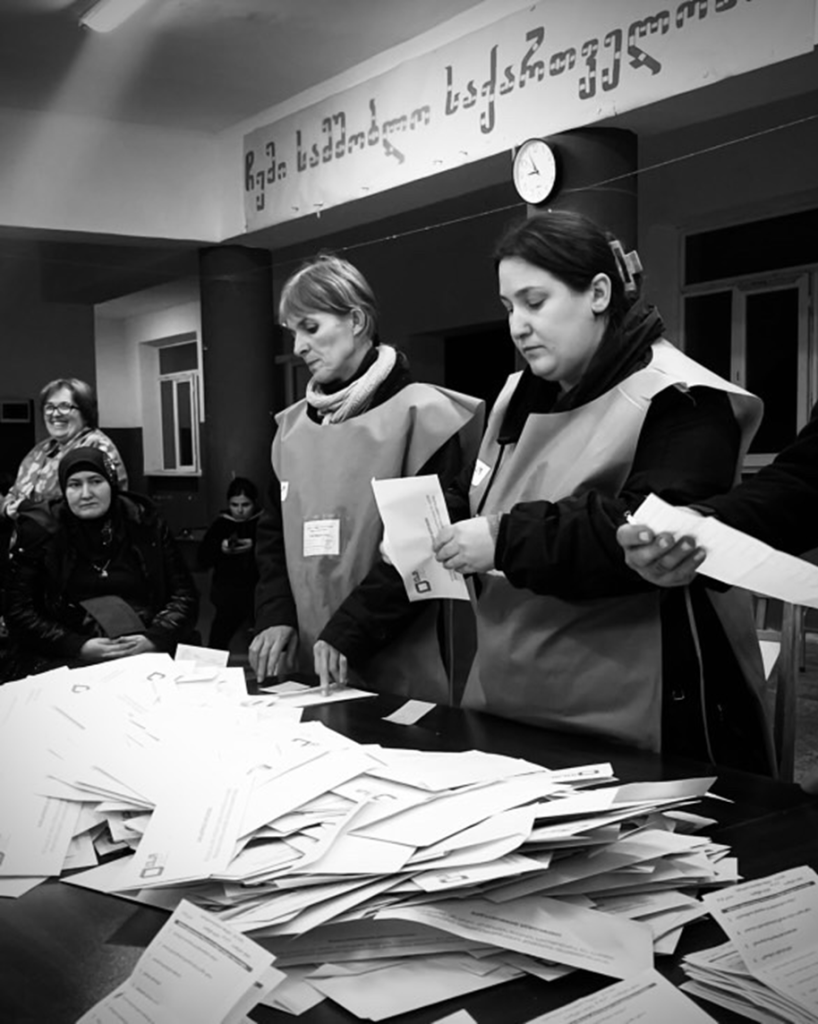
Votes are counted at the polling station (© Gvantsa Gelovani)
The local volunteer observers were firsthand witnesses of what was going on on the ground. Their role was to observe the voting district and detect and identify if there were any cases of violations. There were around 60 NGOs united to train volunteer observers. At different polling stations, the representatives of different political parties, CESCO and international and local observers were present. ISFED’s (International Society for Fair Elections And Democracy) election observation mission included around 1.000 observers inside polling stations, 235 outside, and 45 stationed abroad. Additionally, 73 observers were placed at District Election Commissions, supported by 85 mobile groups. On election day, the central office had 32 operators handling data verification and analysis and 23 lawyers managing incident and complaint centres.
Gvantsa Gelovani, a content creator from Tbilisi, trained as a local observer and travelled to the Kartli region, where she faced scenes that felt far from democratic. “The ruling party seemed prepared for victory – not by fair means, but by manipulation,” she recalled. As the day unfolded, she saw groups of masked individuals entering polling stations, bringing confusion and chaos. “They would throw marked ballots into the box, blatantly tampering with the count. All I could do was try to capture some evidence covertly.”
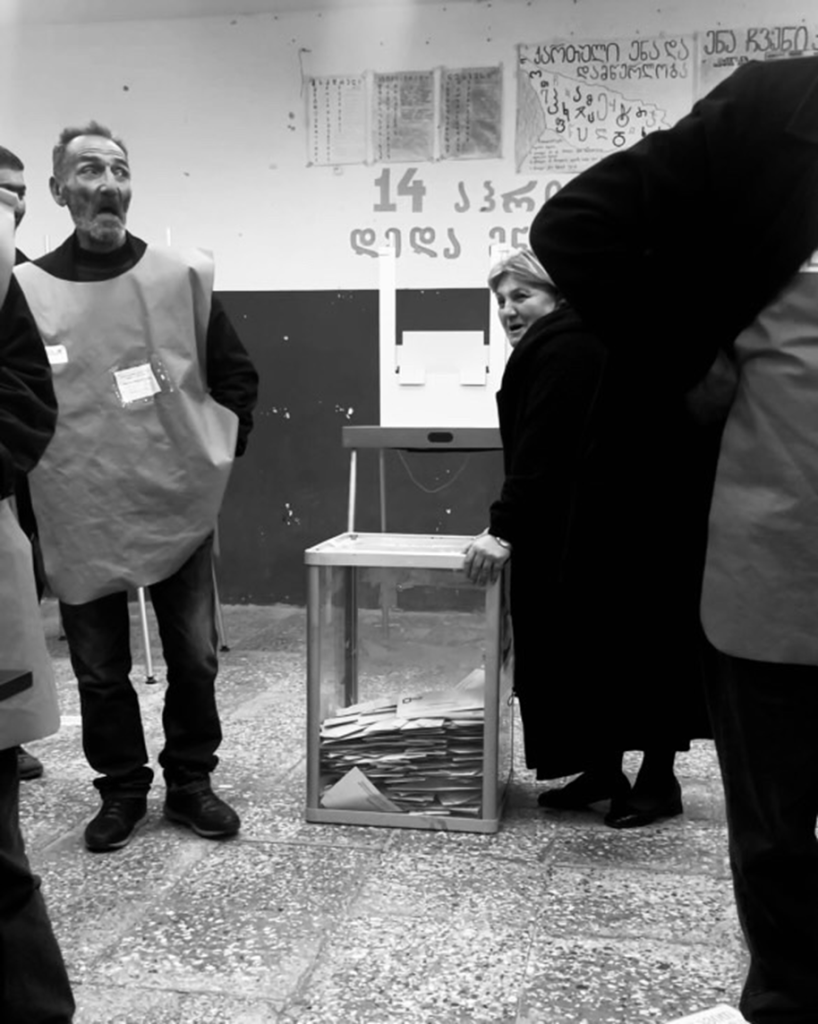
Polling station in Georgia (© Gvantsa Gelovani)
Yet, taking pictures or filming could easily provoke anger from onlookers, who demanded she stop. Gelovani felt a growing sense of helplessness, unable to stop the fraud but determined to document it. „For me, that room in this village school was an embodiment of nowadays Georgia – an absurd theatre, where the government is doing everything to stay in power, falsifying the truth and taking the most precious from us – the right to vote and this vote to be counted.“ Gelovani also said, that the moment of realization of power inequality in the political scene gave her a sad feeling. „We confront money and fear – the biggest things the man in power (Bidzina Ivanishvili, an oligarch and the „father“ of the ruling party Georgian Dream) possesses.“
Giorgi Gotsiridze: Standing up against Intimidation in Marneuli
Giorgi Gotsiridze, an experienced observer and head of the Georgian Young Lawyers Association’s constitutional litigation team, monitored events in the Marneuli municipality. As he tried to document violations, like people voting multiple times or bypassing voter verification, he faced direct threats. “It was one of the most harrowing days I’ve ever experienced,” he said. At 5 p.m., tensions boiled over when he was physically attacked, forced to leave and file a police report. “The intimidation was constant. They wanted us out of the polling stations so no one could see what they were doing,” he said. „However, they still managed to forcefully put the papers in a voting box. It was one of the most obvious shameful behaviours. None of the CESCO observers reported this as a violation, regardless of who was the person who did it: a supporter of GD or any opposition party. Violation has happened and everyone, including international and local observers and media, saw this.“
For Gotsiridze, this experience underscored how crucial observers were to transparency. “What we witnessed was not democracy – it was manipulation, pressure, and outright threats,” he said. His experience has strengthened his resolve to push for accountability in Georgia’s electoral system.
Similar accounts were shared by Natia Kekenadze, who observed the elections in the town of Surami, Shida Kartli region. The polling station was located in a school assembly hall. To imagine the level of absurdity, the polling boxes and other observers from GD or any GD satellite NGO were sitting in the spotlight of the scene. Kekenadze reported numerous violations on election day. CESCO observers distracted her from monitoring, blocking her view of ballot boxes. In the evening, wet ballots were counted despite her call for annulment, agitators lingered near the station, and elderly voters were accompanied by family members to the voting point — both violations. When a staff member left, her untrained replacement mishandled the marking apparatus, skipping required checks. Ballot confidentiality was also compromised by visible black marks.
Her interactions with CESCO observers shifted sharply after 8 p.m.; previously friendly, they began openly supporting GD, creating a hostile atmosphere. Kekenadze also questioned CESCO’s funding, describing the polling station as dirty and cold, with inadequate conditions for a fair election.
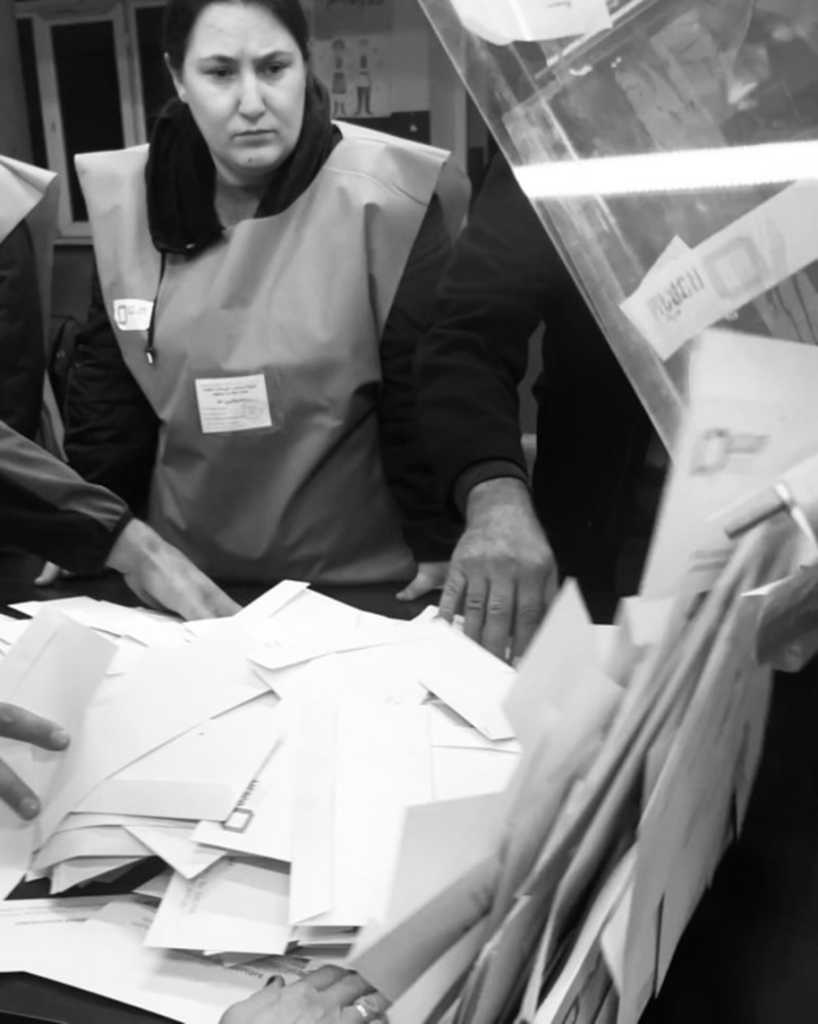
An observer of the elections in Georgia (© Gvantsa Gelovani)
Observers in smaller regions, like sociologist Mariam Akhalauri in Sighnaghi, faced additional challenges. She noted that community ties and personal acquaintances discouraged local officials from reporting violations. This loyalty, she felt, worked in GD’s favour, as neighbours and relatives, biased toward particular parties, seemed to overlook irregularities.
„In a small town like Sighnaghi, personal connections and acquaintanceships play a vital role in such important events. Regardless of hundreds of violations, other observers were not reporting them, because they knew each other – neighbours, friends and relatives were part of different political parties. This fact was a bonus for the GD party. They know very well how to use personal connections for their benefit.“
As the dispute over fair elections continues between the population of Georgia, CESCO, NGOs and the GD, the ruling party ignores every international and local comment or opinion, and tangible evidence of fraud, intimidation and violations of basic voting rules.
The Georgian Dream leaves the country’s citizens disenfranchised of the fundamental right to vote. Now people’s hope lies with the president of Georgia, Salome Zourabichvili, and the actions of opposition parties. The negotiations with the Western partners continue.
LELA JOBAVA graduated from Caucasus University with a degree in European Studies. She is a conflict researcher and a journalist from Gali, Abkhazia. Driven by her passion for conflict-driven reporting, storytelling, and filmmaking, Lela is committed to covering diverse ethnic, religious, linguistic, and gender-related topics, and crafting distinctive stories that highlight unique perspectives. Lela is particularly invested in providing coverage of current affairs and uncovering the untold stories of the unhurried pace of life in Abkhazia, which has remained concealed under the veil of globalization. The themes of memory and identity are integral elements in her work.



